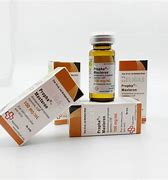
News
Jun . 13, 2024 04:25 Back to list
Melanotan II, a peptide hormone, stimulates melanin production.
Melanotan II An Exploration of the Controversial Tanning Peptide
Melanotan II, a synthetic hormone derived from the alpha-melanocyte-stimulating hormone (α-MSH), has garnered significant attention in recent years due to its potential effects on skin pigmentation and its use as an alternative tanning agent. With a chemical structure similar to endogenous melanocortin peptides, Melanotan II stimulates melanogenesis, the process responsible for the production of melanin, the pigment that darkens the skin.
First synthesized in the 1980s at the University of Arizona, Melanotan II was initially investigated as a possible protective measure against skin cancer by promoting natural tanning without sun exposure. The rationale behind this was that increased melanin production could offer a shield against the harmful ultraviolet (UV) radiation that causes DNA damage and increases the risk of skin cancer.
However, the journey from laboratory to market has been fraught with controversy. Melanotan II is not approved by regulatory agencies like the US Food and Drug Administration (FDA) for general use due to concerns over its safety and efficacy. Unregulated sale of Melanotan II through online vendors has led to a grey area in its consumption, with users self-administering the peptide without medical supervision.
One of the primary concerns regarding Melanotan II is its potential side effects. Users have reported various adverse reactions, including nausea, flushing, changes in appetite, and spontaneous erections in men, collectively known as the Melanotan II Syndrome. Long-term effects remain largely unknown, as the peptide has not undergone extensive clinical trials Long-term effects remain largely unknown, as the peptide has not undergone extensive clinical trials Long-term effects remain largely unknown, as the peptide has not undergone extensive clinical trials Long-term effects remain largely unknown, as the peptide has not undergone extensive clinical trials
Long-term effects remain largely unknown, as the peptide has not undergone extensive clinical trials Long-term effects remain largely unknown, as the peptide has not undergone extensive clinical trials melanotan ii.
Moreover, while Melanotan II may promote tanning, it does not provide the same level of protection against UV-induced skin damage as natural melanin. It does not block all UV rays, leaving users potentially vulnerable to sunburn and increased cancer risk if they assume the peptide offers complete protection.
Despite these concerns, research into Melanotan II continues, exploring its potential applications beyond tanning. Some studies have suggested it might have benefits in treating sexual dysfunction or even obesity, as it influences the melanocortin system involved in appetite regulation.
In conclusion, Melanotan II is a complex compound with a dual identity - a potential tool in the fight against skin cancer and a potentially risky unapproved cosmetic product. As with any unregulated substance, caution is paramount. Further research is necessary to fully understand its effects and risks, and until then, consumers should be aware of the potential hazards associated with its use. Regulatory bodies must continue to monitor its distribution and usage to ensure public health is protected.
melanotan ii.
Moreover, while Melanotan II may promote tanning, it does not provide the same level of protection against UV-induced skin damage as natural melanin. It does not block all UV rays, leaving users potentially vulnerable to sunburn and increased cancer risk if they assume the peptide offers complete protection.
Despite these concerns, research into Melanotan II continues, exploring its potential applications beyond tanning. Some studies have suggested it might have benefits in treating sexual dysfunction or even obesity, as it influences the melanocortin system involved in appetite regulation.
In conclusion, Melanotan II is a complex compound with a dual identity - a potential tool in the fight against skin cancer and a potentially risky unapproved cosmetic product. As with any unregulated substance, caution is paramount. Further research is necessary to fully understand its effects and risks, and until then, consumers should be aware of the potential hazards associated with its use. Regulatory bodies must continue to monitor its distribution and usage to ensure public health is protected.
 Long-term effects remain largely unknown, as the peptide has not undergone extensive clinical trials Long-term effects remain largely unknown, as the peptide has not undergone extensive clinical trials
Long-term effects remain largely unknown, as the peptide has not undergone extensive clinical trials Long-term effects remain largely unknown, as the peptide has not undergone extensive clinical trials melanotan ii.
Moreover, while Melanotan II may promote tanning, it does not provide the same level of protection against UV-induced skin damage as natural melanin. It does not block all UV rays, leaving users potentially vulnerable to sunburn and increased cancer risk if they assume the peptide offers complete protection.
Despite these concerns, research into Melanotan II continues, exploring its potential applications beyond tanning. Some studies have suggested it might have benefits in treating sexual dysfunction or even obesity, as it influences the melanocortin system involved in appetite regulation.
In conclusion, Melanotan II is a complex compound with a dual identity - a potential tool in the fight against skin cancer and a potentially risky unapproved cosmetic product. As with any unregulated substance, caution is paramount. Further research is necessary to fully understand its effects and risks, and until then, consumers should be aware of the potential hazards associated with its use. Regulatory bodies must continue to monitor its distribution and usage to ensure public health is protected.
melanotan ii.
Moreover, while Melanotan II may promote tanning, it does not provide the same level of protection against UV-induced skin damage as natural melanin. It does not block all UV rays, leaving users potentially vulnerable to sunburn and increased cancer risk if they assume the peptide offers complete protection.
Despite these concerns, research into Melanotan II continues, exploring its potential applications beyond tanning. Some studies have suggested it might have benefits in treating sexual dysfunction or even obesity, as it influences the melanocortin system involved in appetite regulation.
In conclusion, Melanotan II is a complex compound with a dual identity - a potential tool in the fight against skin cancer and a potentially risky unapproved cosmetic product. As with any unregulated substance, caution is paramount. Further research is necessary to fully understand its effects and risks, and until then, consumers should be aware of the potential hazards associated with its use. Regulatory bodies must continue to monitor its distribution and usage to ensure public health is protected. Share
Latest news
-
Using tadalafil to promote hair growth and combat hair loss effectively.
NewsJul.10,2024
-
Generating a title similar to palmitoyl oligopeptide could be Oligopeptide containing palmitoyl for skincare benefits and rejuvenation.
NewsJul.10,2024
-
Similarity of the compound tra% 100mg/ml in different pharmaceutical formulations
NewsJul.10,2024
-
Negative impacts of tadalafil on health and well-being
NewsJul.10,2024
-
Anastrozole 0.5 mg twice per week for treatment of cancer patients
NewsJul.10,2024
-
Reviewing the effectiveness of kisspeptin in enhancing reproductive health and fertility.
NewsJul.10,2024
